Memories of Mosul before ISIS
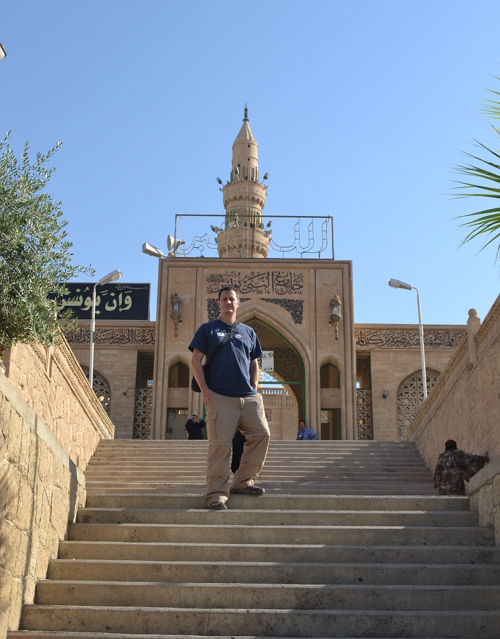
Nobody smiled in Mosul.
What struck me the most when I visited Iraq as a journalist in 2012 was how many people smiled at me. On the street, in mosques, in museums, people came up to welcome me to their country. There was a lull in the fighting and the Iraqis were beginning to allow themselves hope. Nothing brought that home to me like the first time I heard gunshots in Baghdad. Early in the trip I was in my hotel room when that distinctive popping noise came from outside. Peeking from my window, I saw a wedding in progress in front of the hotel. Some of the men were firing into the air to celebrate, oblivious to the sensitivities of hotel guests or the consequences of gravity.
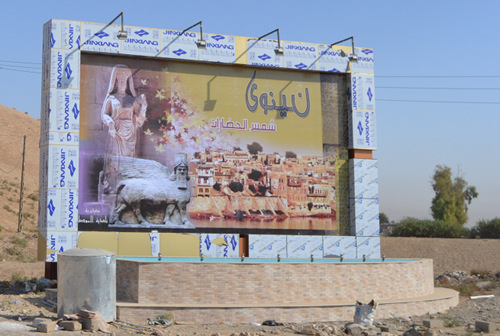
Of course I went down to give my best wishes to the happy couple. As the crowd swirled around me one guy grabbed my arm and shoved a cell phone in my face. It had a photo of him in an Iraqi Army uniform standing next to some American soldiers.
“Friend! Friend!” he shouted, grinning.
I tried to have a conversation with him but that was the only English he knew.
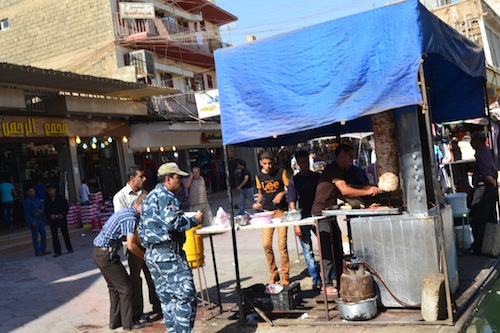
Nothing like that happened in Mosul. It’s a majority Sunni city in a majority Shia country. The Sunnis ruled Iraq during Saddam’s regime but their fortunes have reversed under the current Shia government and their resentment was palpable. I first sensed it when I saw our driver got jumpy and when our police escort called for backup.
We had come to visit the ancient Assyrian city of Nineveh at the edge of town and several other historic sights, but our minders quickly changed plans. All we’d get to see was the Mosque of the Prophet Younis. This is the purported burial site of Jonah and there’s been a mosque here since the 8th century. A series of rulers have lavished ambitious building projects on it, the most recent being Saddam Hussein. Both Christians and Muslims made pilgrimages there to venerate the Biblical prophet in the sprawling mosque with its grand staircase and sleek minaret.
It’s gone now.
On June 2014, Mosul was taken over by the Islamic State of Iraq and al-Sham, popularly known in the Western media as ISIS, who claimed Iraq’s second city as part of their new Caliphate. One of their first acts after they consolidated power was to blow up the mosque, claiming it “had become a place for apostasy, not prayer.”
“Apostasy” is a big word with ISIS. Any Muslim who doesn’t recognize ISIS as the new Caliphate is an apostate. Any Muslim who votes in an election is an apostate. Any Muslim who disagrees with the Caliphate is an apostate. Any Shia is an apostate.
And apostates, of course, have to be killed.
Mosul, which was once Iraq’s most diverse city, has seen a mass exodus of its Kurdish, Christian, Yazidi, and Shia minorities. Those who remained live in fear, if they live at all.
This was all in the future when we visited, but the present was tense enough. There had been countless reprisals against the Sunni community after the fall of Saddam and tensions were high. Our minders sensed too much electricity in the air and changed our plans. So instead of seeing more of Mosul, we zipped out of the city to a Christian town, guarded by its own militia, and visited its ancient churches and monasteries.
Now there’s no second chance to see Nineveh and the museum, because last week ISIS gleefully filmed themselves destroying artifacts in Mosul Museum and hacking away at the statues of winged bulls flanking the Nergal Gate at the Assyrian city of Nineveh at the edge of town. The gate was built by Sennacherib sometime between 704 and 690 BC. The museum lost many artifacts from various periods. An initial assessment of the damage can be seen here.
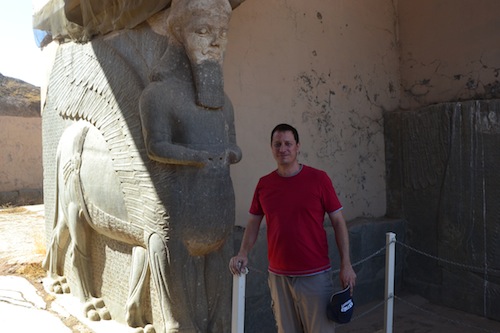
UPDATE: The day after this article was posted, ISIS leveled much of Nimrud, including the winged bull in this photo.
It’s really not surprising that medieval throwbacks like ISIS would destroy these things, but it’s not typical of Iraqis as a whole. Most are proud of their heritage and ancient artifacts and monuments are seen in local art, on television, even on the currency. While there has been extensive damage to archaeological sites since the 2003 invasion, it’s been because of opportunistic looting, not crazed iconoclasm.
Iraqis were as horrified of the destruction as people in the rest of the world, but they have more to be horrified about than that. ISIS is a spreading insanity that threatens to wreck their country, and being Muslim isn’t enough to protect you.
An important article in the Atlantic shows that ISIS hopes to bring about the Apocalypse by encouraging a war against unbelievers. This may be so, but you don’t claw your way to the top of the metaphysical mosh pit that is the Middle East by being stupid. At some level, their leaders must realize they will lose. After all, they declared that all Shias must die in a country that’s majority Shia. Plus they seem eager to alienate all of their neighbors by killing every “apostate” they can get their hands on.
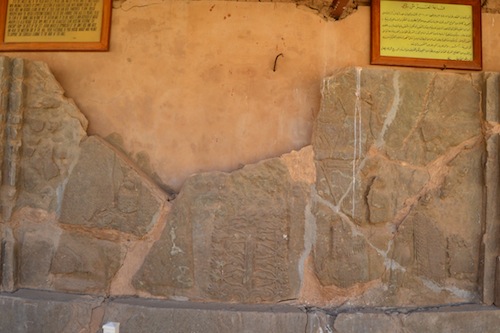
At times ISIS members show an awareness that things will not all go according to plan. They say things like, “If we do not emerge victorious, then our sons or grandsons will.”
ISIS is playing a long game, convinced of their inevitable triumph. If they do not bring about the Apocalypse in this generation, they can always try again. It reminds me of the overlooked post-apocalyptic classic Out of the Mouth of the Dragon by Mark Geston, in which the world gears up for a global war, nearly destroys itself, and starts gearing up again.
Over and over again.
The fools in Geston’s novel never managed to bring about the End Times, and the fools in Iraq will also fail.
But they will succeed in making the world a whole lot uglier.
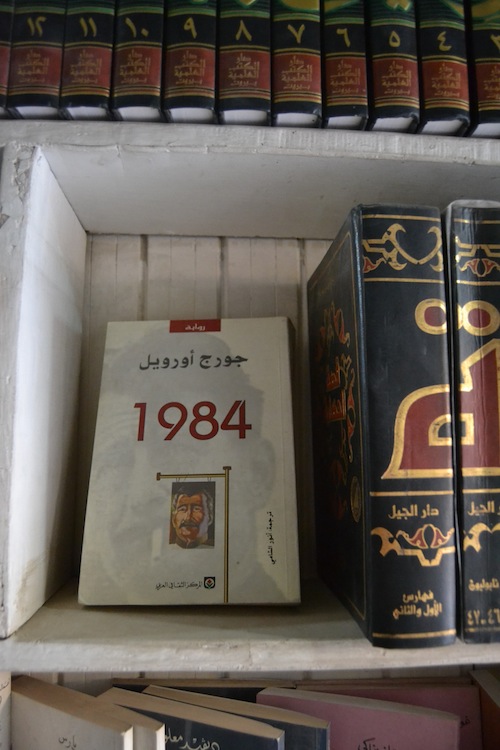
Sean McLachlan is a freelance travel and history writer. He is the author of the historical fantasy novel A Fine Likeness, set in Civil War Missouri, and the post-apocalyptic thriller Radio Hope. His historical fantasy novella The Quintessence of Absence, was published by Black Gate. Find out more about him on his blog and Amazon author’s page. His series on Iraq was written for the now-defunct travel website Gadling. It is still online but sadly the photo galleries have been taken down.

Thank you for this post. The tragedy of that region is so vast, it’s hard to think what to say in response to it. But I wanted you to know that this piece didn’t just sink unread into the void. It’s strong stuff, too strong for a glib or easy comment thread.
Yes, I agree with Sarah, this is a powerful piece. I read about the destruction of the Mosque of the Prophet Younis yesterday and was trying somehow to imagine that it was not as terrible a cultural and historical desecration as it sounded. Seeing the pictures here, it’s impossible to avoid the magnitude of the loss: it’s mind-numbing to think that these structures and monuments which have stood for hundreds or even thousands of years have been casually destroyed in our lifetimes.
For the mosque to have survived all that time, it means that people of many faiths and nations thought it worth preserving; if someone had wanted to destroy it to make a political point, they could have done so centuries ago.
But no one did until July 2014.
Mind-numbing.
[…] week I shared some of my memories of visiting Mosul before it was taken over by ISIS. In that post I wondered if the ancient Assyrian capital of Nimrud […]
[…] Memories of Mosul before ISIS […]
[…] one of my reactions. After seeing the destruction of Damascus and the Iraqi cultural heritage of Mosul and Hatra, I heard of the devastation in Nepal and thought, “Well, at least this disaster […]